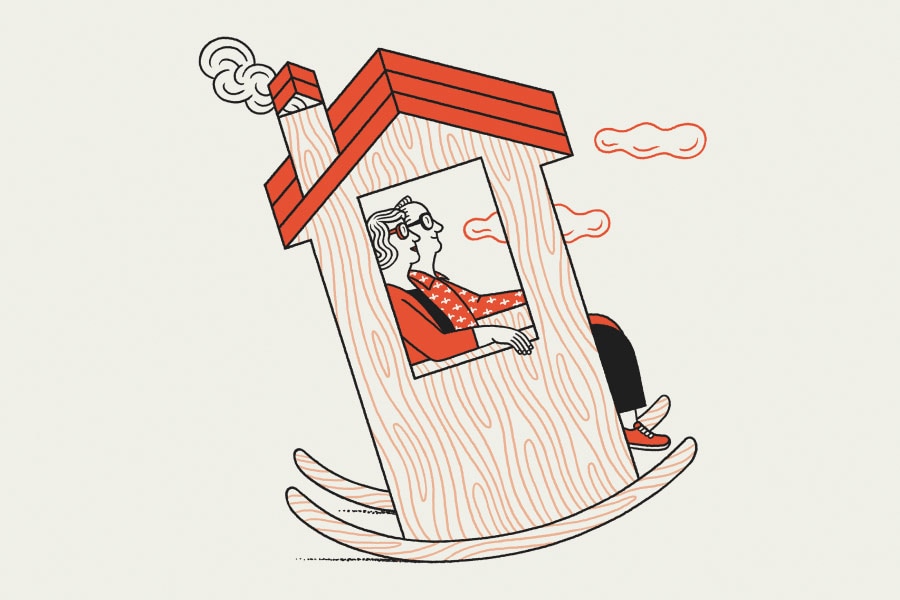4 Tips for Aging in Place

Q
My husband and I are nearing retirement, and one of our goals is to stay in our home as we age. What can we do now to help make that happen?
A
This is such an important question because it addresses something few of us want to consider but most of us will face: the natural limitations of our bodies as we age.
Most of us want to continue living full and independent lives as we grow older. According to an AARP survey, 75% of those ages 50 or older wish to live in their homes as long as possible. But "aging in place" requires advance planning. By looking ahead to your future needs, you're already off to a great start!
Here are four tips to help you maintain your independence as you age.
1. Assess your home
As much as you might love your home in its current state, it should accommodate you as you become less mobile. Consider three factors:
- Layout: Are a bedroom and a bathroom located on the main floor in case climbing stairs becomes a problem? Are entryways and exits easily accessible, particularly if you could require a walker or a wheelchair in the future? Can your home accommodate a live-in care specialist? If not, is it possible—and within your budget—to make the necessary changes?
- Maintenance: Who will tend to your house—inside and out—if you can't? Have you factored regular maintenance and major repairs into your budget?
- Location: Are home health aides and best-in-class health care available in your area? Do family, friends, or other potential support people live nearby?
If you answered "No" to most or all these questions, another home might better suit your future needs.
2. Bolster your support network
Social isolation is a significant risk to your health as you age, increasing the likelihood of anxiety, dementia, depression, heart disease, and stroke.
If you have a small social network, make the effort now to expand it by joining a local recreation center, participating in a book club, picking up a new hobby, or just getting better acquainted with your neighbors.
3. Prioritize your health
Maintaining your mental and physical health can help you preserve your independence. Data shows that "lifestyle medicine"—prioritizing nutrition, physical fitness, sleep, and stress management—can help ameliorate up to 80% of chronic diseases.
It's just as important to stay engaged with activities you love, whether that's art classes, sports, travel, or volunteer work. Committing to an interest outside the house will also help build your social network and stave off isolation.
4. Think long term
Even if you take good care of yourself, odds are that you'll still need help with the activities of daily living—such as bathing, dressing, and even eating—as you get older. Most people assume their spouse or another family member will provide long-term care, but that's not always the case. Caring for someone else can be emotionally and physically grueling work, and many people find hiring professional help is the best path forward.
Unfortunately, Medicare doesn't cover the cost of long-term care, which can be exorbitant. For example, in 2024 the annual median cost of an in-home health aide was $77,792.
If you can't or don't want to pay out of pocket, you might consider long-term care insurance. The price of a policy isn't cheap, with annual premiums in 2025 averaging $1,750 for a 55-year-old man and $2,855 for a 55-year-old woman, assuming $165,000 in initial benefits that increase 2% each year. But the cost of not having coverage could be even more expensive.
If you decide to purchase a long-term care policy, it's best to do so between the ages of 50 and 65. The longer you wait, the higher the premiums—and the greater the risk you could be denied coverage entirely.
Aging with grace
A wise person once observed, "We all get to be young, but it's only the lucky who get to be old." I commend you for thinking now about how and where you want to age and taking the essential steps to make that vision a reality.